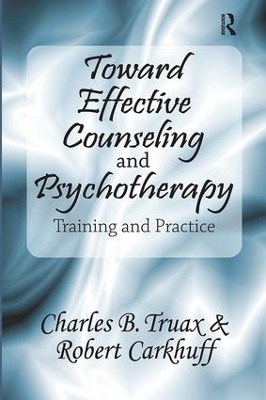The field of counseling and psychotherapy has for years presented the puzzling spectacle of unabating enthusiasm for forms of treatment whose effectiveness cannot be objectively demonstrated. With few exceptions, statistical studies have consistently failed to show that any form of psychotherapy is followed by significantly more improvement than would be caused by the mere passage of an equivalent period of time. Despite this, practitioners of various psychotherapeutic schools have remained firmly convinced that their methods are effective. Many recipients of these forms of treatment also believe that they are being helped.
The series of investigations reported in this impressive book resolve this paradoxical state of affairs. The investigators have overcome two major obstacles to progress in the past--lack of agreement on measures of improvement and difficulty of measuring active ingredients of the psychotherapy relationship. The inability of therapists of different theoretical persuasions to agree on criteria of improvement has made comparison of the results of different forms of treatment nearly impossible. The authors have solved this intractable problem by using a wide range of improvement measures and showing that, regardless of measures used in different studies, a significantly higher proportion of results favor their hypothesis than disregard it.
Overall, this book represented a major advance at the time of its original publication and is of continuing importance. The research findings resolve some of the most stubborn research problems in psychotherapy, and the training program based on them points the way toward overcoming the shortage of psychotherapists.
- ISBN10 1138539783
- ISBN13 9781138539785
- Publish Date 3 November 2017 (first published 29 September 2017)
- Publish Status Active
- Publish Country GB
- Publisher Taylor & Francis Ltd
- Imprint Routledge
- Format Hardcover
- Pages 430
- Language English
